June Goodfield is a British historian, scientist, and writer of both fiction and non-fiction.
June Goodfield is a British historian, scientist, and writer of both fiction and non-fiction.
Born Gwyneth June Goodfield in Stratford-upon-Avon in 1927, she read zoology at the University of London and undertook a PhD in history and philosophy of science at Leeds University, graduating in 1959, and spending the following year as a research assistant at Oxford University. After teaching biology at Benenden School, Kent, and Cheltenham Ladies' College, Goodfield lectured in history and philosophy of science at Leeds University until 1960. She was consultant at Harvard University's Department of Education (1960–65), professor of history and philosophy of science at Wellesley College (1966–69), professor of human medicine and philosophy at Michigan State University (1969–78), senior research fellow at the Rockefeller University (1977–82), and Robinson Professor at George Mason University, Fairfax, Virginia.
Goodfield has participated in the work of professional bodies, including the Institute of Society, Ethics and the Life Sciences, the American Association for the Advancement of Science, the Zoological Society, and the Royal Society of Medicine. She was president of the United Nations Association in 1986–1987.
Goodfield married Stephen Toulmin [1] in 1960, and collaborated with him on a series of books on the history of science, including The Architecture of Matter (1962) and The Discovery of Time (1966). In the 1970s and 1980s she wrote on the battle against disease, particularly The Siege of Cancer (1975) and Quest for the Killers (1985), which described the epidemiological search for the cause and cure of five deadly diseases: Kuru, Hepatitis B, Schistosomiasis, leprosy, and smallpox.
Her book An Imagined World described five years spent with one scientist, tackling the question of whether and how the personality of a scientist is expressed in their work.
The second major book, Science and the Media, was commissioned by the American Association for the Advancement of Science.
Goodfield has produced and directed a number of scientific films, winning several awards. Her 1964 film on the development of the cell theory, The Perfection of Life, won second prize at the Sydney Scientific Film Festival. Her five-part television series From the Face of the Earth, broadcast in the United Kingdom and in the United States (as Quest for the Killers) won the British Association for the Advancement of Science Award for the best television series in 1985.[ citation needed ]
While at the Rockefeller University she founded International Health and Biomedicine (UK/USA), a not-for-profit organisation whose objective was to enhance public understanding of science and its impact on global health problems.[ citation needed ]
Goodfield has written several books on the history of her native Sussex, including Deans Place (2006) and Stanmer & the Pelhams (2007) and Wingrove and the Churchill Connection, in collaboration with fellow historian Peter Robinson.
Her work Rivers of Time: Why is everyone talking to Philippa? (2008) was inspired by a seventeenth-century memorial on the island of Nevis. In the sixteenth century, women rarely had dedicated memorials in their own right. The discovery of a marker tablet in the lee of Saddle Hill, at the southern end of Nevis, giving the name of a woman who died in 1683, triggered a quest lasting many years. Nevis is a small island that has been influential in the history of both Great Britain and America, with links to Alexander Hamilton, Lord Nelson, and Diana, Princess of Wales. The mystery of the marker tablet is now solved; her book is being made into a film. [2]
In September 2008 Goodfield participated in the launch of a new personal and social history recording website called the Times of My Life. She gave a speech on the importance of leaving a written legacy behind and was joined at the event by World War II singer Dame Vera Lynn and actor and explorer Brian Blessed. [3]
In 2008 she founded SAFE (Save Alfriston for Everyone), a local charity which seeks to resolve the traffic problem suffered by the Sussex village of Alfriston. She was an active member of Alfriston Parish Council, and Chairman of the Alfriston & Cuckmere Valley Historical Society.[ citation needed ]
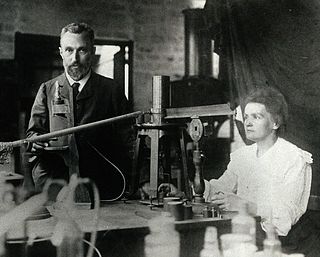
A scientist is a person who researches to advance knowledge in an area of the natural sciences.
The Book of Healing is a scientific and philosophical encyclopedia written by Abu Ali ibn Sīna from medieval Persia, near Bukhara in Maverounnahr. He most likely began to compose the book in 1014, completed it around 1020, and published it in 1027.
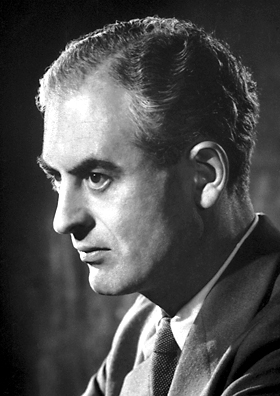
Sir Peter Brian Medawar was a British biologist and writer, whose works on graft rejection and the discovery of acquired immune tolerance have been fundamental to the medical practice of tissue and organ transplants. For his scientific works, he is regarded as the "father of transplantation". He is remembered for his wit both in person and in popular writings. Richard Dawkins referred to him as "the wittiest of all scientific writers"; Stephen Jay Gould as "the cleverest man I have ever known".
Deep time is a term introduced and applied by John McPhee to the concept of geologic time in his book Basin and Range (1981), parts of which originally appeared in The New Yorker magazine.
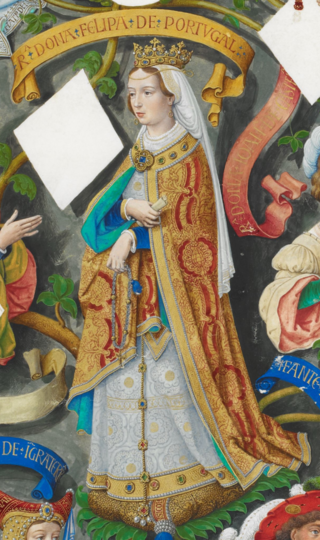
Philippa of Lancaster was Queen of Portugal from 1387 until 1415 as the wife of King John I. Born into the royal family of England, her marriage secured the Treaty of Windsor and produced several children who became known as the "Illustrious Generation" in Portugal. She was the only Queen of Portugal of English origin.

Norwood Russell Hanson was an American philosopher of science. Hanson was a pioneer in advancing the argument that observation is theory-laden — that observation language and theory language are deeply interwoven — and that historical and contemporary comprehension are similarly deeply interwoven. His single most central intellectual concern was the comprehension and development of a logic of discovery.
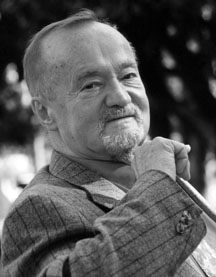
Stephen Edelston Toulmin was a British philosopher, author, and educator. Influenced by Ludwig Wittgenstein, Toulmin devoted his works to the analysis of moral reasoning. Throughout his writings, he sought to develop practical arguments which can be used effectively in evaluating the ethics behind moral issues. His works were later found useful in the field of rhetoric for analyzing rhetorical arguments. The Toulmin model of argumentation, a diagram containing six interrelated components used for analyzing arguments, and published in his 1958 book The Uses of Argument, was considered his most influential work, particularly in the field of rhetoric and communication, and in computer science.
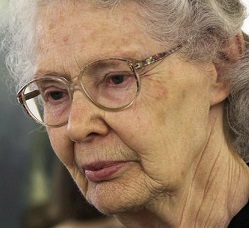
Mary Brenda HesseFBA was an English philosopher of science, latterly a professor in the subject at the University of Cambridge.
Evolutionary epistemology refers to three distinct topics: (1) the biological evolution of cognitive mechanisms in animals and humans, (2) a theory that knowledge itself evolves by natural selection, and (3) the study of the historical discovery of new abstract entities such as abstract number or abstract value that necessarily precede the individual acquisition and usage of such abstractions. As a branch of inquiry in epistemology, evolutionary epistemology lies at the crossroads of philosophy and evolutionary biology.
Barbara Carroll Forrest is a professor of philosophy at Southeastern Louisiana University in Hammond, Louisiana. She is a critic of intelligent design and the Discovery Institute.

Rhetoric of science is a body of scholarly literature exploring the notion that the practice of science is a rhetorical activity. It emerged after a number of similarly oriented topics of research and discussion during the late 20th century, including the sociology of scientific knowledge, history of science, and philosophy of science, but it is practiced most typically by rhetoricians in academic departments of English, speech, and communication.
Stephanie Jutta Schwabe is a geomicrobiologist. She completed a Ph.D. in the biogeochemical investigation of caves within the Bahamian carbonate platforms, commonly referred to as blue holes. She is an expert geologic diver mostly in Bahamian blues holes, though her experience extends to expeditions in U.S. waters. Diver International named her one of the top 40 divers in the world.

Philippa "Pippa" Marrack, FRS is an English immunologist and academic, based in the United States, best known for her research and discoveries pertaining to T cells. Marrack is the Ida and Cecil Green Professor and chair of the Department of Biomedical Research at National Jewish Health and a distinguished professor of immunology and microbiology at the University of Colorado Denver.
The Centre for History and Philosophy of Science is a research centre devoted to the historical and philosophical study of science, technology and medicine, based in the School of Philosophy, Religion and History of Science, at the University of Leeds in West Yorkshire, England. The Centre – previously known as the Division of History and Philosophy of Science, which was founded in 1956 – is one of the oldest units of its kind in the world. Throughout its history, the Centre has been home to many of the leading historians and philosophers of science who have deepened our understanding of scientific activity and how it shapes and is shaped by wider society.
An index list of articles about the philosophy of science.
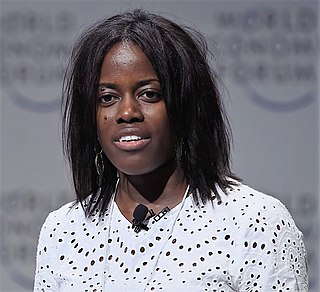
Mandë Holford is an associate professor in chemistry at Hunter College with scientific appointments at the American Museum of Natural History and Weill Cornell Medical College. Her interdisciplinary research covering 'mollusks to medicine' spans chemistry and biology and aims to discover, characterize, and deliver novel peptides from venomous marine snails as tools for manipulating cellular physiology in pain and cancer.

Earyn McGee is an American herpetologist and science communicator. She is an American Association for the Advancement of Science (AAAS) IF/THEN Ambassador and a 2020 AAAS Mass Media Science & Engineering Fellow. In response to the racism faced by Black birdwatcher Christian Cooper in the Central Park birdwatching incident, McGee co-organized Black Birders Week to celebrate Black birders.

Thematic Origins of Scientific Thought: Kepler to Einstein is a collection of essays on themes in the history of physics by Gerald Holton. It was originally published in 1973 by Harvard University Press, who issued multiple reprints of the book leading up to the publication of a revised edition in 1988. The book has been translated into several languages and has received many reviews.
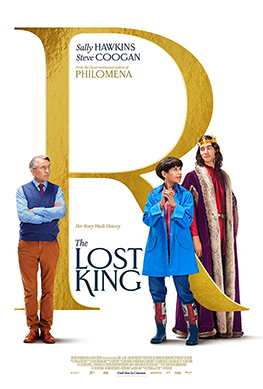
The Lost King is a 2022 British biographical film directed by Stephen Frears. Written by Steve Coogan and Jeff Pope, it is based on the 2013 book The King's Grave: The Search for Richard III by Philippa Langley and Michael Jones. It is a dramatisation of the story of Philippa Langley, the woman who initiated the search to find King Richard III's remains under a car park in Leicester, and her treatment by the University of Leicester in the claiming of credit for the discovery. Coogan and Harry Lloyd also feature in the cast.